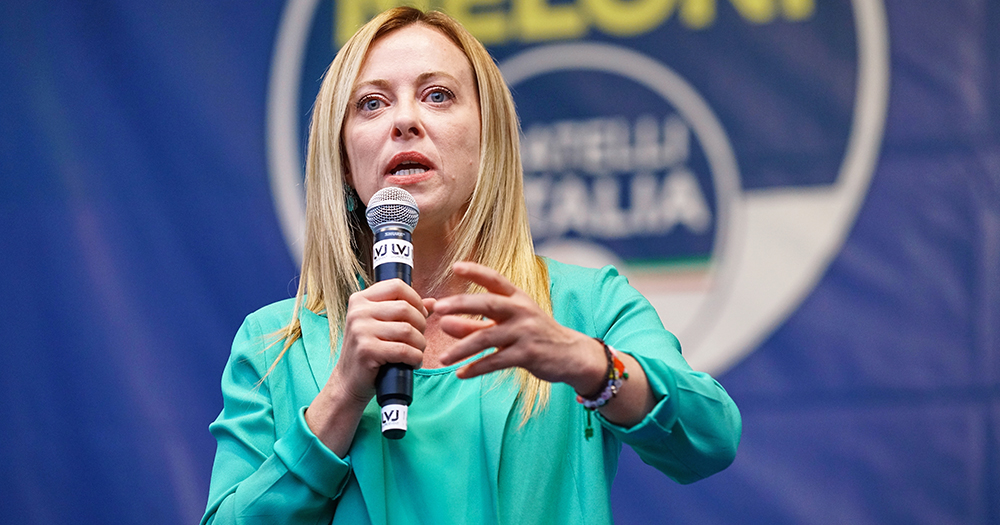The Italian Senate has passed a new law making surrogacy a “universal crime”. Surrogacy is already illegal in this country and has been so since 2004, so this new law takes restrictions to a whole new level.
Italy’s new law makes it a crime for Italian citizens to engage in surrogacy abroad, even in countries where the practice is legal. Under the law, any intended parent who breaks the law will face penalties of up to two years in prison and fines of up to €1 million ($1 million).
Italian Prime Minister Giorgia Meloni called the new surrogacy ban a “common sense” against the exploitation of the female body and children. She said on social media that “human life is priceless and is not a commodity”.
Italian lawmakers have condemned surrogacy as a “universal crime” (reato universale). The use of such terminology has sparked concerns, as it mirrors language from the Italian Criminal Code reserved for grave offenses like genocide and crimes against humanity. By framing surrogacy in this context, the law places it in the same category as some of the most severe violations of human rights.
Why Italy Considers Surrogacy A ‘Universal Crime’
Pope Francis earlier this year, called for a global ban on surrogacy, describing the practice as “deplorable” and insisting that “a child is always a gift and never the basis of a commercial contract.”
The Catholic Church opposes surrogacy because it is “contrary to the unity of marriage and to the dignity of the procreation of the human person”, and is against in-vitro fertilization (IVF) because the process involves the disposal of unneeded embryos, which the church believes is immoral.
Prime Minister Giorgia Meloni’s party, Brothers of Italy, had promised to ban surrogacy during the 2022 election campaign, which brought her party to power. Banning surrogacy was in the party’s manifesto, along with policies against same-sex marriage and same-sex adoption.
During the debate in the Senate, a Brothers of Italy senator called motherhood “the foundation of our civilisation”. Meloni’s policies, from banning surrogacy to restrictions on abortion, curtail reproductive choice – ideologically driven by an emphasis on “natural” motherhood. But many see the surrogacy ban as the opposite of protecting women and children, calling it a “medieval” ruling.
Surrogacy in Other European Countries
Countries are not aligned on whether surrogacy should be allowed or prohibited. Most European countries consider surrogacy as a violation of human rights, while several allow it, albeit with different restrictions and safeguards.
Ukraine allows heterosexual married couples to enter into contracts for gestational surrogacy, making it a surrogacy hotspot for many Western European countries.
In Greece, non-commercial surrogacy has been legal since 2002, allowing the intended parents to have legal parenting from the time of delivery. California, on the other hand, allows commercial surrogacy, in which surrogates are paid for their services.
Other countries, including Spain, France and Germany, prohibit surrogacy. This means that the surrogate is the legal mother when the child is born. But they still typically allow the intended parents to establish a legal bond with the child by other means, for example by giving legal recognition to the genetic father alongside the surrogate mother or to both parents via adoption, in cases where surrogacy has been sought abroad.
In the UK, the surrogate is the legal parent at birth but courts can transfer parenthood to the intended parents through a parental order, a surrogacy-specific mechanism designed to be less burdensome than adoption.
No New Consensus on Surrogacy
The European Court of Human Rights often reviews events in its member states (including Italy) to determine whether there is broad consensus on an issue. In 2014, it examined surrogacy in its Mennesson v. France judgment, and in 2019, it issued an advisory opinion on the matter. However, this did not lead to any consensus on the legitimacy of surrogacy arrangements. It decided that the rights of children born through surrogacy require “a possibility of recognition of a legal parent-child relationship”. Italy’s absolute ban on surrogacy goes against this reasoning.




